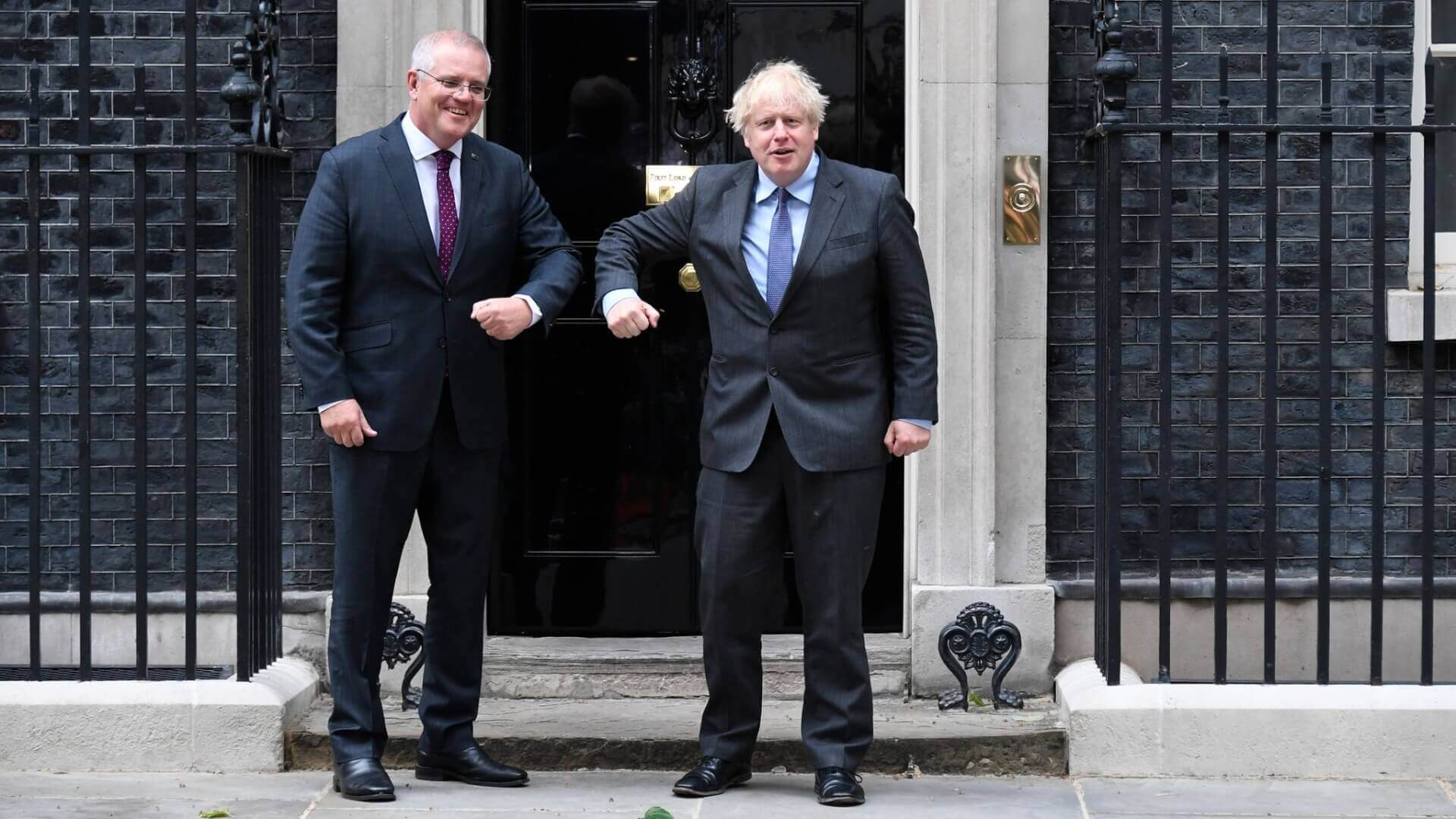British Prime Minister (PM) Boris Johnson agreed to a free trade agreement (FTA) with his Australian counterpart Scott Morrison after the two sides discussed major components of the deal on Monday after the G7 Summit. Confirming the positive discussions, Australia’s trade minister, Dan Tehan said, “Both Prime Ministers have held a positive meeting in London overnight and resolved outstanding issues concerning the (Free Trade Agreement).” The trade agreement is likely to boost imports/exports and facilitate the migration of people between the two countries with relaxations in visas for leisure and work.
The free trade deal has come at an opportune time for the United Kingdom (UK), since it was actively seeking to establish new economic ties with other countries after Brexit. This is UK’s first bilateral FTA after its exit from the European Union in 2020. A spokesperson for the Australian PM confirmed the intent of the two nations to ratify the free trade agreement by the end of this year and implementation by next year. The spokesperson termed the deal as a victory for both countries regarding “jobs, businesses and free trade.”
In an interview with Sky News on June 13, Australian Trade Minister Tehan outlined the number of elements that could feature the UK’s final trade agreement. Some of the topics discussed were tariff duties, agriculture, exports, services, investments, economic opportunities and national interest. Tehan also emphasised Australia’s aim to diversify its market and reduce dependence on one country.
According to the UK Department for International Trade, UK’s tariff-free trade with Australia is likely to increase UK’s GDP within the next 15 years by 0.2%. The department stated that Australia has a strong comparative advantage in its exports of livestock meat and may supply UK retailers at lower prices than domestic producers.
However, the Guardian reported that some farmer unions have been opposing the free trade deal with Australia. Ian Blackford, the leader of the Scottish National Party in Westminster, said, “Such a trade deal would represent a bitter betrayal of rural communities, undermining and undercutting our agricultural sector and amount to a genuine threat to future viability.” British farmers also fear importing meat with “lower welfare standards” and its availability in the UK market.
Besides farmers, food industries also oppose the free trade agreement with Australia and condemn the agreement’s ratification without proper consultation and scrutiny. In an open letter, representatives of farmers and food industries stated: “The risks here are enormous for the whole food and drink supply chain and, in the absence of any formal impact assessment to suggest the contrary, we remain hugely concerned at the impact on sensitive sectors of our industry”.
Britain’s free trade agreement with Australia will also pave the way for Britain’s accession into CPTPP (Comprehensive and Progressive Agreement for Trans-Pacific Partnership). Australia is one of its existing members with Brunei, Cambodia, Japan, Chile, Malaysia, New Zealand, Singapore, Vietnam, and Peru. According to the Guardian, CPTPP, which brings together a market of 500 million people, has been the focus of the British Trade Minister Liz Truss since Brexit. The leaders of CPTPP have already agreed to UK’s accession to this alliance.
Australia, meanwhile, has actively been focusing on expanding trade ties and military cooperation with other countries, in part to reduce its reliance on China amid an enduring diplomatic and trade spat with the Asian giant.

